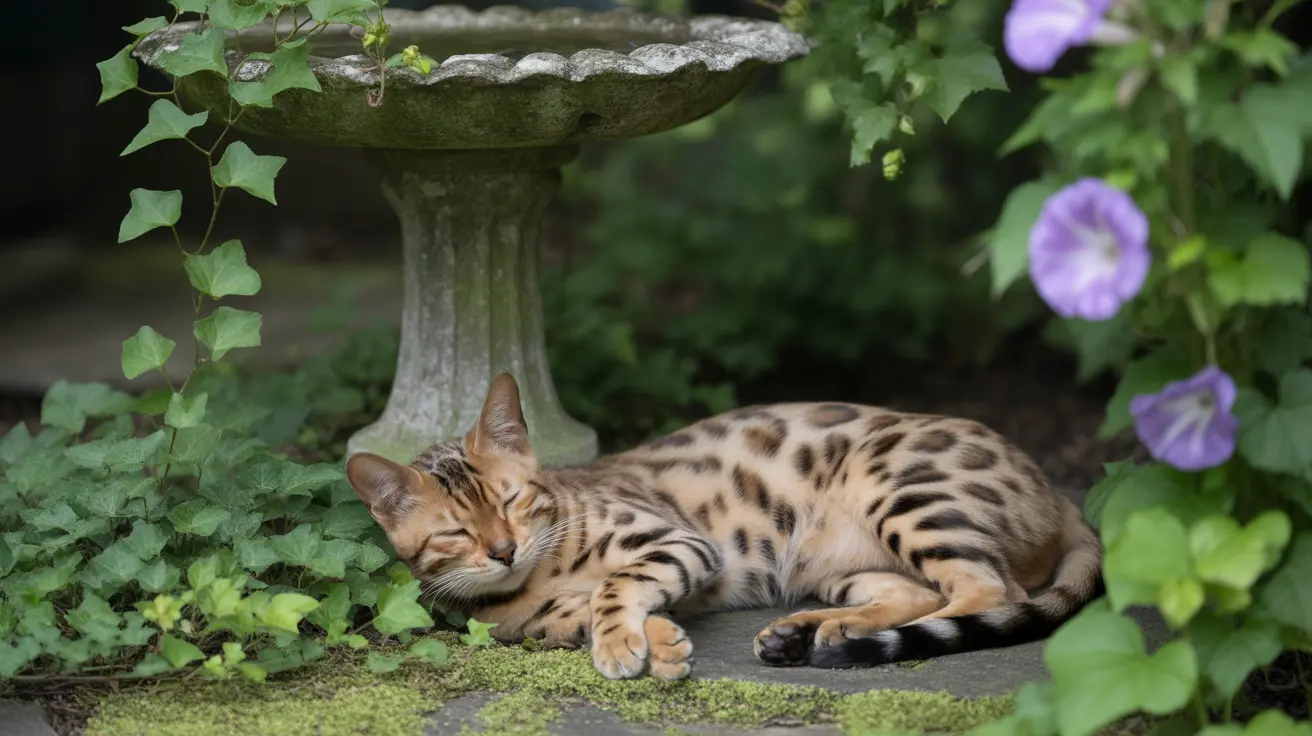Many cat owners have heard the concerning belief that cats run away to die, but is there truth to this common misconception? Understanding feline behavior and the science behind cats' movements can help pet parents separate fact from fiction and better protect their beloved companions.
In this comprehensive guide, we'll explore the real reasons cats may wander away from home, their remarkable homing abilities, and what science tells us about their end-of-life behavior. We'll also provide practical advice for keeping your cat safe and what to do if they go missing.
Understanding Why Cats Leave Home
Contrary to popular belief, cats don't deliberately run away to die. Instead, sick or elderly cats may seek quiet, secluded places due to their natural instinct to protect themselves when feeling vulnerable. This behavior is deeply rooted in their wild ancestry, where showing weakness could attract predators.
When cats disappear, it's typically due to various factors unrelated to end-of-life decisions:
- Territorial exploration
- Pursuit of prey
- Mating instincts (especially in unneutered cats)
- Accidental displacement
- Response to environmental stressors
The Science Behind Cats' Homing Instinct
Cats possess remarkable navigational abilities that can help them find their way home, even from considerable distances. Their homing instinct relies on several sophisticated biological mechanisms:
Sensory Navigation
- Exceptional sense of smell
- Acute hearing capabilities
- Enhanced night vision
- Sensitive whiskers for environmental awareness
Magnetic Field Detection
Research suggests cats may have magnetoreceptors in their inner ears and skin, allowing them to detect Earth's magnetic fields for orientation. This natural compass system can help them maintain directional awareness during their travels.
When Cats Become Lost or Displaced
If your cat goes missing, understanding their typical behavior patterns can help in locating them:
- Indoor cats typically stay within a 500-foot radius of home
- Outdoor cats may roam several miles but usually maintain familiar territory
- Displaced cats often seek shelter in quiet, protected areas
- Most lost cats are found within 5-7 days
Protecting Your Cat from Getting Lost
Take these preventive measures to keep your cat safe:
- Ensure proper identification (microchip and collar with tags)
- Maintain secure window screens and doors
- Consider a catio or enclosed outdoor space
- Keep indoor cats stimulated to reduce escape attempts
- Schedule regular veterinary check-ups to monitor health
Frequently Asked Questions
Do cats really run away to die, or is this just a myth?
This is largely a myth. While sick cats may seek quiet places to rest, they aren't making a conscious decision to "run away to die." This behavior is a natural instinct to find safety when feeling vulnerable.
How do cats use their homing instinct to find their way back home?
Cats use a combination of sensory cues, including smell, hearing, and possibly magnetic field detection. They create mental maps of their territory and can follow scent trails back home.
What factors influence a cat's ability to return home after getting lost?
Key factors include the cat's age, health status, outdoor experience, distance from home, weather conditions, and familiarity with the environment.
Can indoor cats find their way back home if they escape, and what can you do to help them?
Indoor cats generally have more difficulty finding their way home due to limited outdoor experience. Place familiar-smelling items outside, search nearby hiding spots, and alert neighbors immediately.
How can you increase the chances of a lost cat returning home safely?
Microchip your cat, maintain current ID tags, post signs in the neighborhood, contact local shelters, and place your cat's litter box or bedding outside to create familiar scent markers.
Conclusion
While the myth about cats running away to die persists, the reality is that feline behavior is much more complex. Understanding your cat's natural instincts and taking proper precautions can help ensure their safety and quick return if they ever become lost.
Remember that cats are intelligent, resourceful creatures with remarkable navigational abilities. By providing proper identification, maintaining their health, and creating a secure environment, you can help protect your feline friend and enjoy many happy years together.






